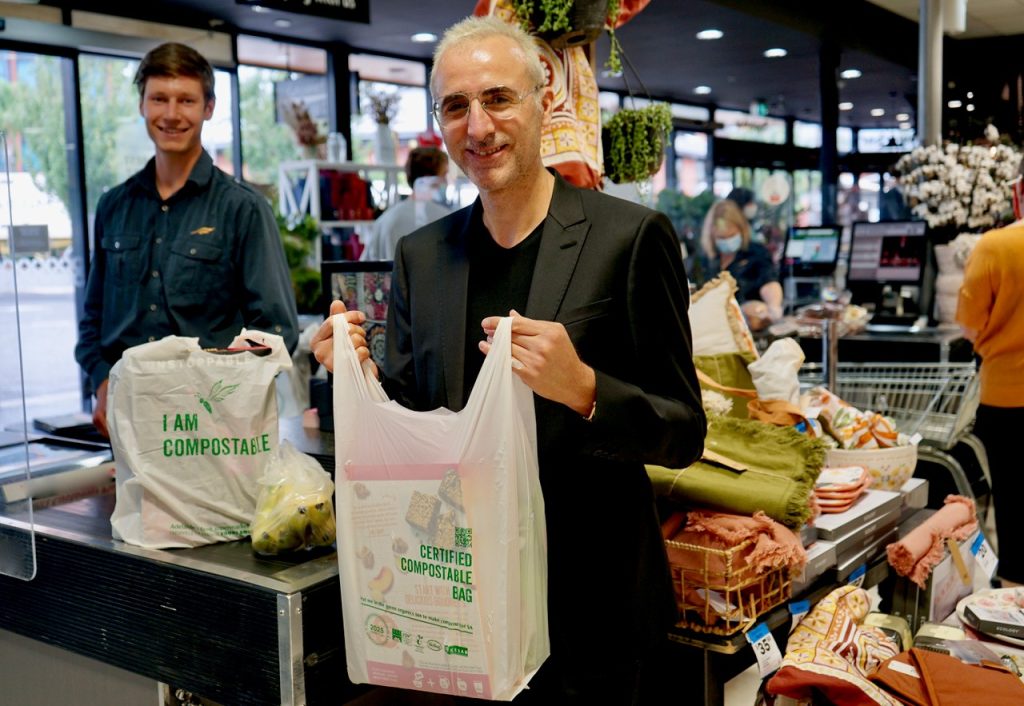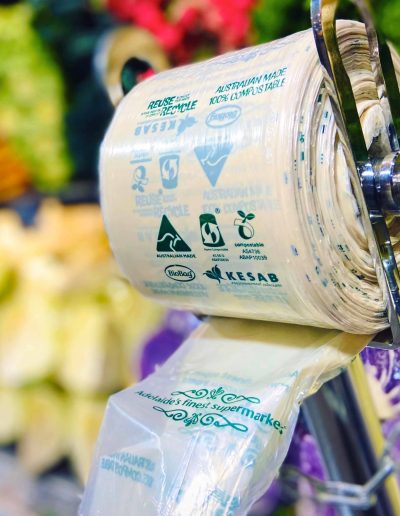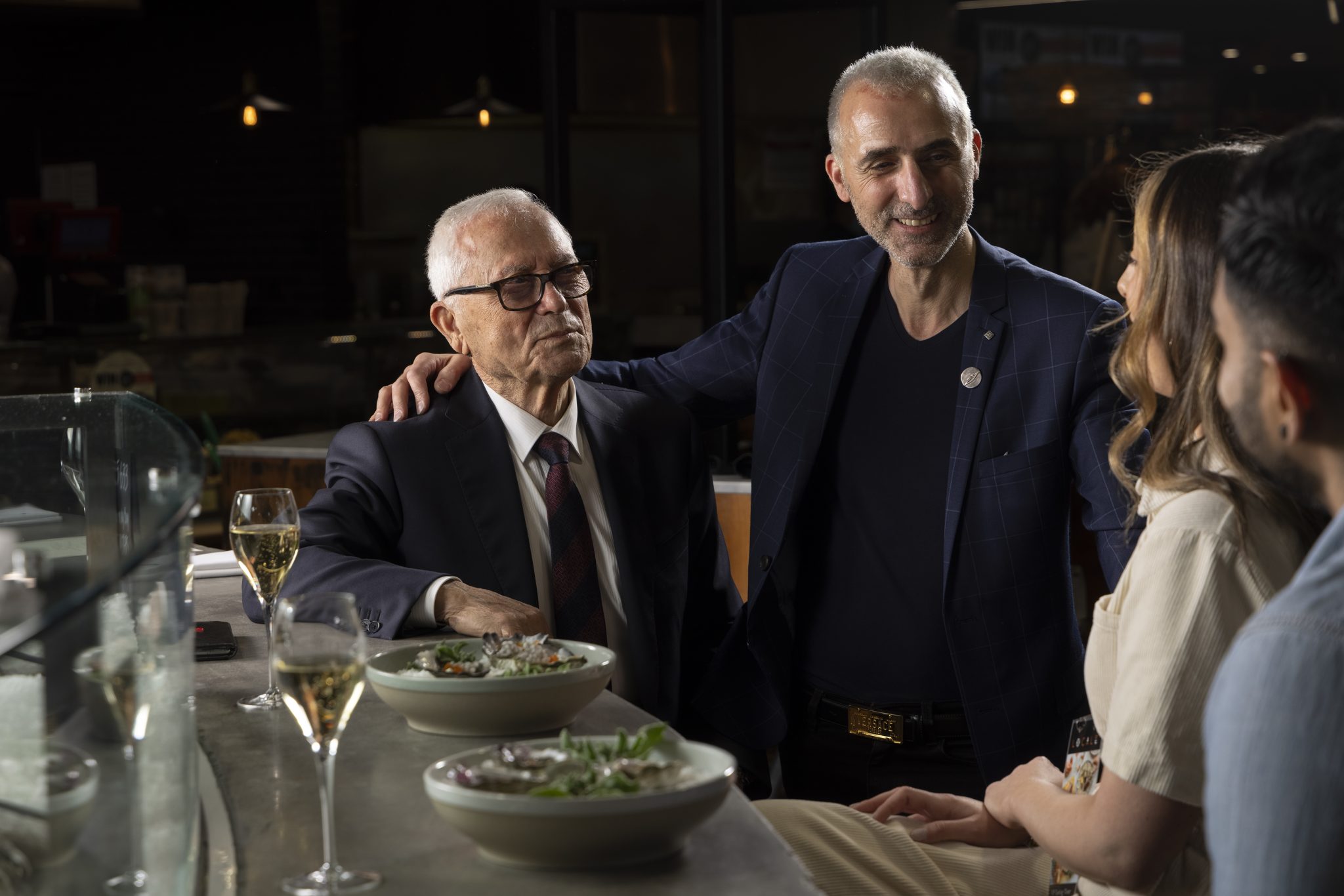Leading with purpose
As a South Australian, family-owned and operated business we have always felt a responsibility to lead with purpose and we are really proud to announce our sustainability plan.
Sustainability isn’t a new concept to us, for decades we have offered options to reduce waste whilst providing choice.
Since 2021 we have been working with KESAB environment solutions to develop our sustainability plan which outlines the key areas of focus and progressive actions.
The strategy brings together many of Adelaide’s Finest’s key achievements to date while setting ambitious targets and challenges us to build on this in a co-ordinated way moving forward. It acts as a roadmap for achieving long term goals and commitments.
We are excited to share our journey with you. View our sustainability plan below.
Our Sustainability Plan
An ongoing journey
Reducing our ecological footprint and environmental impact is a journey that never truly ends. It’s often said that sustainability is not a destination but a journey.
Adelaide’s Finest Supermarkets has always had an awareness and a genuine commitment to environmental sustainability.
“The sustainability work is ongoing, it is a ‘forever’ plan for us, and we’re now committing to much deeper improvements. We are not perfect but we are totally committed to sustainability with all that we do,” AFS director Spero Chapley says.
“Environmental efforts are more than ticking boxes. It is about attitude, courage, commitment and a long-term view, being smart about decisions we make and the way we do things.”
Environmental considerations for AFS include waste, packaging and energy but sustainability also touches on areas such as wellbeing, community and connectivity.
There are several sustainability initiatives where AFS has led the way including being a pioneer of certified compostable and biodegradable BioBag fresh produce bags – and now the game-changing checkout carry bags.
Making changes
AFS was the first supermarket group in South Australia to have a reusable container scheme – Pack and Go – to help reduce the use of single-use plastics. Cardboard trays for fresh produce are another positive move.
The store environment at Frewville and Pasadena Foodland is also an example of the AFS emphasis on wellbeing for staff and customers with the creation of welcoming, inclusive and inspiring community spaces.
“Supermarkets had a very sterile, lifeless environment in the past but there is a bit of change going on now…we have played a role here I think and others are now following our path,” Spero says.
“Our little-fish-in-a-big pond initiatives have never been part of a planned agenda, things have happened naturally, and as a ripple effect, we are making broader positive change in the community.”
Looking to the future, AFS plans to explore sustainable construction practices at its visionary new greenfields development site.
The project will work with Green Star Communities certification as a framework, complemented by Living Building Challenge (LBC) which is an international sustainable building certification program.
“We want to walk the talk when it comes to cutting back single-use plastics so we’re continuing to work closely with our suppliers to reduce the amount of plastic used in product packaging, particularly fresh fruit and vegetables”.
Check Out NEW Compostable Carry Bags
Adelaide’s finest supermarkets has been making meaningful inroads into further reducing the use of single-use plastics throughout its stores. It is part of our long-term commitment to sustainability and our community.
The fresh produce sections at Frewville and Pasadena Foodland pioneered the use of 100% Australian-made compostable BioBag produce bags in 2020. Now it’s gone a step further with the introduction of BioBag carry bags at the checkout.
The carry bags are strong, reusable and made from the same compostable material as the produce bags. The printing ink is also completely compostable so when they reach their end of life, they can be composted via your green-lidded organics bin.
“We’ve already reintroduced paper bags at the checkout and the next step was always these BioBag compostable carry bags,” Spero Chapley says.


Compostable Fruit & Veg Bags
Our sustainability ethos has led us to work closely with KESAB to provide our community with an environmentally friendly fruit & veg bag.
These Biobags will break down into harmless organic matter anywhere there’s oxygen and microorganisms, including on land and in water and are both compostable & biodegradable to Australian standards. You can REUSE these bags at home to collect food waste and then RECYCLE in your green bin or compost.

Pack & Go
Our customers have really embraced our Pack & Go reusable container program with KESAB to help reduce the use of single-use plastics.
Simply make a one-off purchase of a Décor container at a discounted rate in-store at Frewville or Pasadena Foodland, fill it with delicious ingredients from our World’s biggest pantry, wash it and return it in exchange for a hygienically-cleaned new container, then repeat again and again!
OzHarvest
Adelaide’s finest supermarkets is working to minimise food wastage at its two Mr Nick’s Kitchen sites by partnering with food rescue organisation Oz Harvest.
Quality, excess food from Mr Nick’s at Frewville and Pasadena is collected and distributed to people in need which also diverts food waste from landfill.
Shop Online
Frewville and Pasadena’s home delivery service uses compostable cardboard boxes for dry groceries. These are used two to three times, then bundled and sent away for further recycling. The stores use polyfoam boxes on average three to five times.
Ice packs for delivery are reused three to four 4 times on average and are cleaned before each re-use.
There is always a paper bag option for shoppers who want to avoid plastic bags. AFS also sells its eco-friendly jute bags which encourage less use of plastic bags. They’re strong, easy to wipe, durable …and look good! The bags are available to buy in both stores.
AFS Green Team
Adelaide’s finest supermarkets has been working with KESAB on a range of sustainability projects.
We sat down with Sarah from the KESAB team to discuss some of the valuable work which is being done.
“AFS was keen to better manage materials so KESAB completed a waste audit and created a waste management plan in 2019,” Sarah from the KESAB team says.
“From there, more environmental considerations have been tackled when it comes to resources such as energy and water use, and exploring how AFS can work better with the community for sustainable outcomes.”
KESAB has also worked with AFS to create a dedicated staff-run “green team” which is keen to explore opportunities and continue to improve over time.
“The thing that excites me is that the staff at AFS are willing to try new things, take some risks and experiment and be a bit different,” Sarah says.
“That allows for flexibility which is really important in such a dynamic industry. Not everyone knows that you have to update your waste knowledge and practices regularly so it’s great to see AFS committed to ongoing improvement, not only in this area.
“The other part that is really exciting is the holistic view. Waste is only one element of what AFS is working on …that holistic view is based on community and connectivity which is really inspiring and speaks to what the Chapley family has envisaged.”
